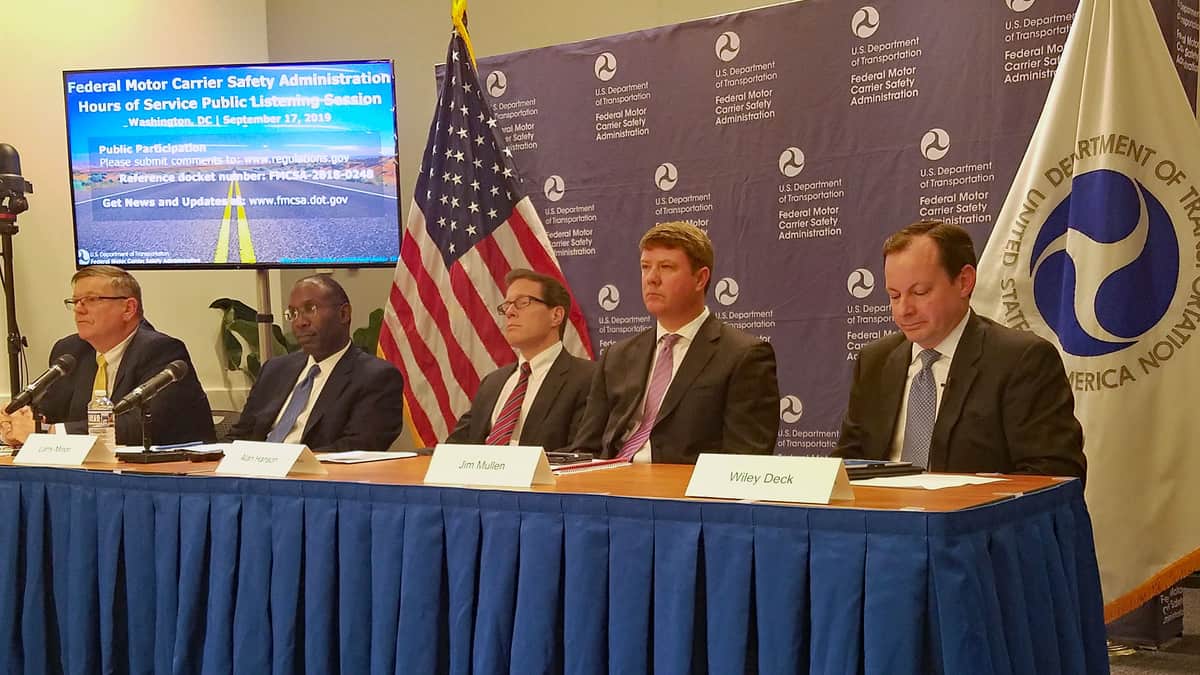FMCSA yet to receive evidence of “price gouging” by freight brokers

Story by: at FreightWaves.com
Despite widespread complaints by small business truckers that they are being price gouged by freight brokers colluding against them, the industry’s top regulator has yet to see formal evidence backing their case.
“It’s a hot topic now – there were protesters here in D.C., and the President has spoken on some of these issues,” Federal Motor Carrier Safety Administration (FMCSA) Acting Administrator Jim Mullen told attendees of a webinar hosted by the Intermodal Association of North America, or IANA, on May 28. However, he said, “the vast number of complaints we have about the freight brokerage space and the rates right now aren’t relative” to the federal broker transparency laws covered by 49 CFR 371.3, he said.
“In fact, we don’t have a specific complaint that a broker failed to abide by 371.3, in a situation in which the motor carrier hadn’t waived, contractually, the ability to get that financial data that the regulation encompasses.” But Mullen added: “We don’t expect this to go away anytime soon, and we take our regulatory obligations very seriously.”
After weeks of demonstrations in Washington, drivers accusing brokers of cheating and price-gouging, the Owner-Operator Independent Drivers Association (OOIDA) petitioned the FMCSA to enforce federal broker transparency laws, as well as prohibit brokers from issuing contracts that require carriers to waive their rights to access freight transaction records.
“Brokers have been deliberately skirting federal transparency regulations for decades,” OOIDA President and CEO Todd Spencer asserted. “We certainly don’t think exempting yourself from federal regulations is legal, but this is precisely what is happening. It has to stop.”
Mullen said during the IANA discussion that the FMCSA is considering OOIDA’s petition. “Step one of that deliberation is, do we even have the statutory authority? Expect, perhaps, a notice and comment.”
Mullen noted also that when 371.3 was initially written into law there were different freight transaction processes in place. “Motor carriers paid brokers directly, versus the shipper paying the brokers,” he said. “So there’s perhaps some difference of opinion as to what the net effect of what that regulation was intended to be. I’ll save that debate for a different time.”
Read the full story and more HERE
Source of original story and credits: freightwaves
iTrucker / Mario Pawlowski / itrucker.com




3confounds
fcn chat gay https://bjsgaychatroom.info/
reviews of gay dating web sites https://gaypridee.com/
best dating apps for gay men https://speedgaydate.com/
igt slots online for free https://2-free-slots.com/
slots free single https://freeonlneslotmachine.com/
penny slots free https://candylandslotmachine.com/
calendar with time slots https://slotmachinesworld.com/
free dragons lair slots https://slot-machine-sale.com/
card game slots https://beat-slot-machines.com/
free slots 1 https://download-slot-machines.com/
las vegas casino slots https://411slotmachine.com/
dissertation help derrida https://dissertationwriting-service.com/
dissertation writing services https://help-with-dissertations.com/
dissertation help service villeurbanne https://mydissertationwritinghelp.com/
apa dissertation citation https://helpon-doctoral-dissertations.net/